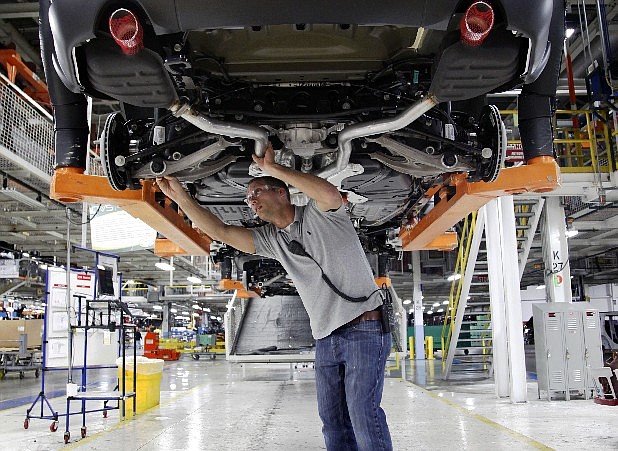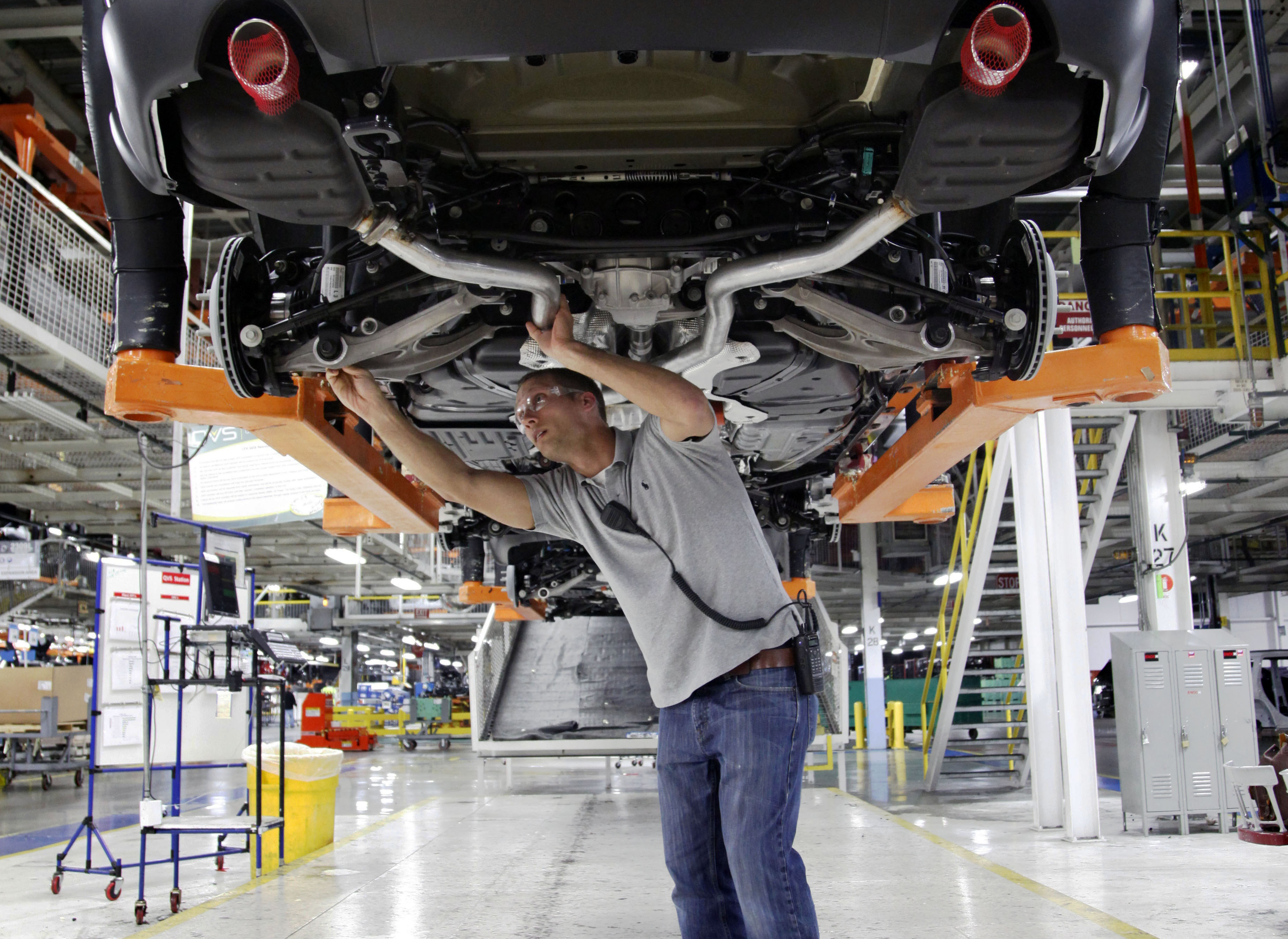DETROIT - Automakers are going to have to work a little harder for your business in 2014.
After four years of strong sales increases -- and few discounts -- as the economy improved, U.S. demand for new cars and trucks is expected to slow this year. That could mean better deals for buyers as car companies fight to increase their share of the market.
The industry got a taste of what's to come in December, when General Motors, Toyota and Volkswagen all saw their sales fall from a year ago. One reason: Competitors like Ford and Honda increased their incentive spending on hot sellers like pickup trucks and midsize cars, according to TrueCar.com, which tracks car prices. Cold weather and strong sales over Black Friday in November also pinched December sales, automakers said.
This year's slowdown is inevitable, analysts say. Many people who held on to their cars through the recession have now bought new ones. Those who haven't may not be in any rush, because cars are lasting longer than ever before. And unless there's a strong uptick in the economy, families aren't likely to buy a third car.
Alec Gutierrez, senior analyst for Kelley Blue Book, expects U.S. sales to increase by around 700,000 to 16.3 million in 2014. That compares to increases of more than 1 million each year since 2009, when U.S. sales bottomed out at 10.4 million.
"Sales are approaching an equilibrium level of demand based on the needs of population and the number of licensed drivers in the country," he said.
So 2013 could be remembered as the last of the boom years. As automakers reported full year sales Friday, analysts were expecting an increase of more than 1.2 million -- or 8 percent -- to around 15.6 million. It would be the best performance since 2007, when 16.1 million new cars and trucks were sold.
Ford led all major automakers in 2013 with an 11 percent gain to almost 2.5 million vehicles. Chrysler and Nissan posted 9 percent gains. GM, Toyota and Honda each posted 7 percent gains. GM sold 2.8 million cars and trucks in the U.S., compared to just over 2.2 million for Toyota. Hyundai's sales rose 2.5 percent.
Among major automakers, only Volkswagen struggled, with sales falling 7 percent as its vehicles aged compared with rivals.
Gutierrez said Honda offered $3,000 in bonus cash to dealers in December for every vehicle they sold beyond their 2012 numbers. And Ford said it spent $600 more per vehicle on incentives in December, likely taking aim at GM's new pickup trucks. Those are the kinds of tricks buyers can expect to see more of this year.
"We think there's going to definitely be more competition," said Larry Dominique, president of Automotive Lease Guide, a company that tracks lease costs and car prices.
On a conference call to discuss December results, General Motors executives made several references to competitors raising discounts to boost sales, especially on full-size pickup trucks. While they pledged to stick to their strategy of selling on value rather than price, U.S. sales chief Kurt McNeil said GM also has to respond to the market.
Industrywide inventory is rising, and that could also increase discounts because carmakers will have to sell off excess vehicles. But McNeil said prices likely won't come down too much because the underlying economy is strong. Also, carmakers closed plants and got leaner during the recession, so the country is no longer seeing the kind of overproduction it saw a decade ago.
The average price of a new vehicle in December was $32,890, which was about the same as a year ago, according to Kelley Blue Book.

